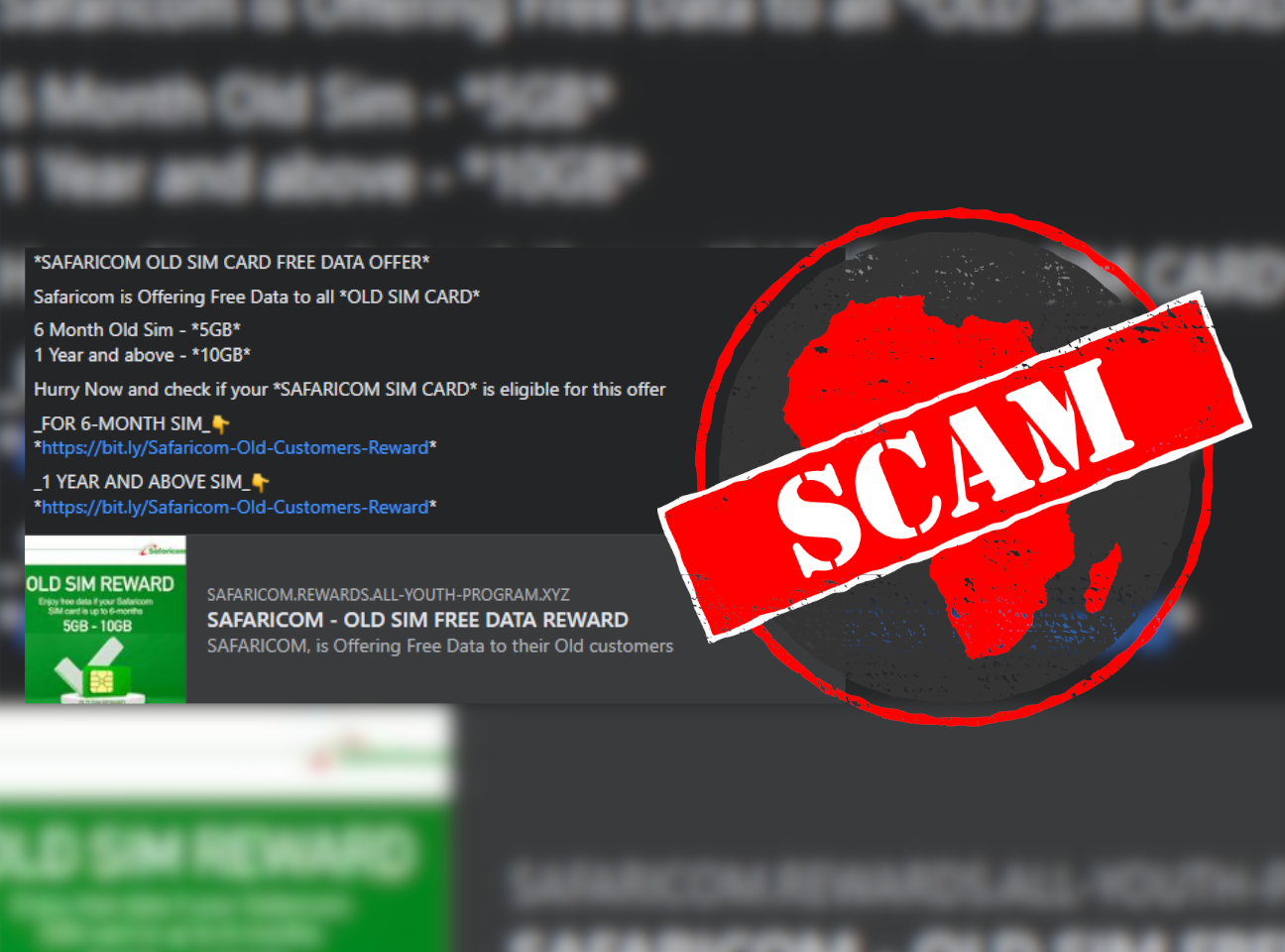IN SHORT: Links posted on Facebook and shared on WhatsApp offer free data to Safaricom customers with SIM cards six months and older. But this is engagement bait and should be ignored.
A link claiming to offer free data to Safaricom customers with old SIM cards has been shared on Facebook and WhatsApp groups in Kenya.
A SIM, also known as a Subscriber Identity Module, is a smart card that stores identification information that links a phone to a specific mobile network.
The link claims that customers with SIM cards that are six months old get 5GB and SIM cards that are a year old or more get 10GB.
The text accompanying the link reads: “SAFARICOM OLD SIM CARD FREE DATA OFFER Safaricom is Offering Free Data to all OLD SIM CARD 6 Month Old Sim - 5GB 1 Year and above - 10GB Hurry Now and check if your SAFARICOM SIM CARD is eligible for this offer _FOR 6-MONTH SIM https://bit.ly/Safaricom-Old-Customers-Reward*_1 YEAR AND ABOVE SIM_ https://bit.ly/Safaricom-Old-Customers-Reward*.”
Safaricom is Kenya's largest telecommunications provider and one of the most profitable companies in East and Central Africa. It is best known as the home of M-Pesa, an SMS-based mobile banking service.
But is the link and its promise genuine? We checked.

Engagement bait scam
The link takes users to a website where they are asked to enter their Safaricom phone number to verify their eligibility for the offer.
Users are then asked to answer the question: “How old is your SIM card?”
There is a condition at the end. The user is asked to share the link with five groups or 15 friends on WhatsApp in order to receive the data. Only if they follow the instructions will they receive the data.
Africa Check has investigated similar links in the past. This is an example of engagement bait, asking people to like, share or comment to increase the reach of the post, but offering no real reward.
Read our guide to Facebook scams and how to spot them to protect yourself from online fraud.
Republish our content for free
For publishers: what to do if your post is rated false
A fact-checker has rated your Facebook or Instagram post as “false”, “altered”, “partly false” or “missing context”. This could have serious consequences. What do you do?
Click on our guide for the steps you should follow.
Publishers guideAfrica Check teams up with Facebook
Africa Check is a partner in Meta's third-party fact-checking programme to help stop the spread of false information on social media.
The content we rate as “false” will be downgraded on Facebook and Instagram. This means fewer people will see it.
You can also help identify false information on Facebook. This guide explains how.




Add new comment